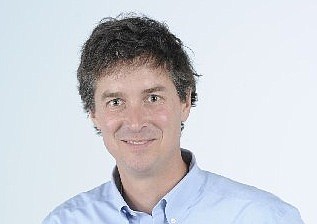David Cook: Mona Lisa in Hamilton County
Tuesday, October 23, 2012
Out of 46 elementary schools in Hamilton County, only 14 have art classes that meet on a weekly basis.
Barger Academy. Battle Academy. Big Ridge. Brown International Academy. Calvin Donaldson. East Brainerd. East Ridge. Hardy. Lookout Mountain. Nolan. Normal Park. Ooltewah. Red Bank. Thrasher.
"The rest of the elementary schools do not have art on a regular basis," said Karla Riddle, director of innovative programs for Hamilton County Schools.
So this means that roughly 70 percent of elementary-aged children in Hamilton County do not receive regular instruction in the arts. It's like arts suffer in the same way your fourth cousins suffer at family reunions: People are glad they're there, but nobody pays much attention to them.
"In magnet schools ... we have art teachers that are paid by the general purpose budget," Riddle said. "In others, principals have figured out other ways through grants, possibly title funds ... (and) parents raising money to have an art teacher there."
Which means that arts education has a tendency to flow upward, into wealthier communities that can raise additional money to pay for teachers.
In 2008, the state Legislature passed a law requiring all K-8 schools to provide arts and music instruction. But in the same piece of legislation, lawmakers then cut the legs out of their own law: they only "encouraged" local school boards to implement this.
I've never heard of another law that only encourages folks to follow it.
Normally in the argument, this is when I trot out one of the dozens of studies linking evidence between arts and good schools. Like the one in 2010 that linked fewer disciplinary problems (along with higher graduation rates, test scores and attendance) with arts education. Or the Johns Hopkins research that showed arts education can rewire the brain. Or the studies showing connection between arts and improved literacy and mathematics skills.
Plus, art may be the most fluid of all disciplines. Kids in elementary school today will be working in jobs and careers that haven't even been invented yet, so fast is the rate of change in our society. Arts education teaches and encourages this mental flexibility, using not horizontal-thinking memorization but creativity, adaptability and problem-solving - all part of what the future economy will demand.
But you know what? None of that should matter anyway.
Because arts aren't utilitarian, a means to an end, a way to make more money, or score higher on the ACT, or get a job in 2030. Art trumps all of that.
"Art can make our lives richer," said Adera Causey, curator of education for the Hunter Museum of American Art, as we sat down Monday morning at Rembrandt's Coffee House.
In our 45-minute conversation, Causey stretched the seams, showing how so many of our cultural and societal fourth downs can be remedied by what art teaches.
"An openness. Not to be afraid. To be curious and not be afraid of that curiosity," said Causey.
Two plus two is always four, but the painting of the blind boy by the window at sunset can be about a dozen different things, each of them laced with your own experience or understanding (to me, the painting is about the fear of not having a column ready at deadline time). Art can grease the wheels by which we encounter other parts of our daily life: our kids' crazy music, the politics we disagree with, our relationship with others.
Here's some good news: Every high school has regular arts instruction, Riddle said. Same is true with every middle school, save two (Orchard Knob Middle and East Ridge Middle). The Hunter opens its doors for free admission the first Sunday of every month. Our city continues to invest in public art.
But nothing will happen in our elementary schools until adults demand it. And adults won't demand it until they encounter art - safely, easily, gratefully - in their own lives. Thanks to those who try and make this encounter happen.
Tuesday's online-only column is based around sharing a meal or drinks with someone in Southeast Tennessee or North Georgia. Contact David Cook at dcook@timesfreepress.com or 423-757-6329. Follow him on Facebook and Twitter at DavidCookTFP.

